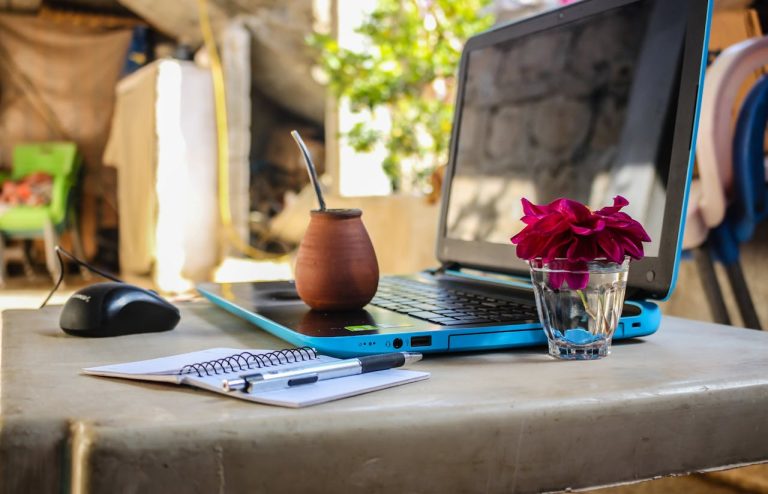Traveling as a Nigerian professional can be an exciting yet challenging experience, especially when it comes to managing clients and projects. Whether you are a freelancer, a digital nomad, or a remote employee, effectively juggling your work commitments while exploring new destinations requires strategic planning and organization. This guide offers detailed insights and practical tips to help you maintain productivity, communicate effectively, and ensure your projects progress smoothly, all while enjoying your travel adventures.
Understanding the Digital Nomad Lifestyle
The concept of digital nomadism has gained significant traction in recent years, especially with the rise of remote work opportunities. As a Nigerian traveling for business or leisure, embracing this lifestyle can offer you the flexibility to work from various locations around the world. However, it also comes with its unique set of challenges, including time zone differences, cultural nuances, and the need for reliable technology.
Benefits of Being a Digital Nomad
- Flexibility: You can choose where and when to work, allowing you to explore new cultures and environments.
- Networking Opportunities: Traveling provides the chance to connect with other professionals and potential clients from different backgrounds.
- Work-Life Balance: Combining work and travel can enhance your overall well-being and job satisfaction.
Challenges of Being a Digital Nomad
- Time Management: Balancing client needs with your travel itinerary can be tricky.
- Communication Barriers: Different time zones and cultural contexts may complicate interactions.
- Technology Dependence: A stable internet connection and reliable devices are crucial for remote work.
Planning Your Travel Schedule
Before embarking on your journey, careful planning can help you mitigate potential challenges and ensure that your work responsibilities are met. Here are some strategies to consider:
1. Create a Work-Travel Schedule
- Identify Key Dates: Note important deadlines, meetings, and client calls. Use a shared calendar tool like Google Calendar to keep everything organized.
- Block Time for Work: Designate specific hours for focused work. Be realistic about how much time you can commit each day to avoid burnout.
2. Choose Your Destinations Wisely
- Consider Time Zones: Select destinations that allow for reasonable overlap with your clients’ time zones to facilitate communication.
- Check Internet Connectivity: Research the reliability of internet services in your chosen locations. Areas with co-working spaces can be beneficial.
Setting Up Your Work Environment
Creating a conducive work environment while traveling can significantly enhance your productivity. Here are some tips to establish an effective workspace:
1. Find Co-Working Spaces
- Research Local Options: Look for co-working spaces in the area that offer reliable internet, comfortable seating, and a productive atmosphere.
- Network with Other Professionals: Co-working spaces often host events where you can meet other freelancers and entrepreneurs, opening doors to potential collaborations.
2. Create a Mobile Office
- Invest in Essential Tech: Ensure you have a reliable laptop, smartphone, and portable charger. Consider using cloud storage services for easy access to your documents.
- Use Noise-Canceling Headphones: This can help you concentrate in noisy environments and during virtual meetings.
Communication Strategies
Effective communication is crucial for managing clients and projects while traveling. Here are some techniques to enhance your communication skills:
1. Leverage Technology
- Use Communication Tools: Platforms like Slack, Zoom, and Microsoft Teams facilitate seamless communication with clients and colleagues.
- Stay Organized: Tools like Trello or Asana can help you track project progress and deadlines, making it easier to collaborate with remote teams.
2. Be Proactive in Your Communication
- Set Expectations: Inform your clients about your travel plans, including time zone differences and your availability. Being transparent helps manage their expectations.
- Check-in Regularly: Schedule regular updates to keep clients informed about project developments, even if there are no major changes.
Time Management Tips
Traveling can disrupt your usual work routine, but with effective time management, you can stay on top of your projects:
1. Prioritize Tasks
- Use the Eisenhower Matrix: Distinguish between urgent and important tasks to focus on what truly matters. This method can help you allocate your time more efficiently.
- Set Daily Goals: Establish clear objectives for each work session to maintain focus and productivity.
2. Embrace Flexibility
- Adjust to Local Schedules: Be open to modifying your work hours based on local culture and your clients’ needs. If possible, schedule your work around peak travel times.
Building and Maintaining Client Relationships
Fostering strong client relationships is vital, especially when working remotely. Here are strategies to enhance your client interactions:
1. Personalize Your Communication
- Use Clients’ Names: Address clients personally in emails and messages to foster a more engaging connection.
- Share Travel Experiences: Occasionally share insights about your travels, especially if they relate to your work. This can strengthen your rapport with clients.
2. Be Available
- Set Clear Availability Hours: Let clients know when you are available for calls or meetings. Make sure to adhere to these times as much as possible.
- Use Scheduling Tools: Tools like Calendly can help clients easily book meetings with you, avoiding back-and-forth emails.
Managing Projects Remotely
Efficient project management is key to ensuring that your work is completed on time and meets client expectations. Here are some effective project management techniques:
1. Utilize Project Management Software
- Centralize Information: Use tools like Monday.com, ClickUp, or Basecamp to keep track of project tasks, deadlines, and files in one location.
- Assign Responsibilities: Clearly define roles and responsibilities within your project team to avoid confusion.
2. Monitor Progress
- Set Milestones: Break down projects into smaller, manageable tasks with deadlines. This approach makes it easier to track progress.
- Regular Check-Ins: Schedule periodic check-ins with your team to discuss progress and address any issues that may arise.
Staying Productive While Traveling
Staying productive while traveling can be challenging, but implementing certain strategies can help you maintain focus:
1. Establish a Routine
- Create a Morning Routine: Start your day with activities that energize you, such as exercise, meditation, or reading, before diving into work.
- Designate Work Hours: Stick to a consistent work schedule that aligns with your travel plans. This can help you stay disciplined.
2. Avoid Distractions
- Limit Social Media Use: Set specific times to check social media to prevent it from becoming a distraction during work hours.
- Use Website Blockers: Consider using website blockers during work hours to limit access to distracting sites.
Navigating Cultural Differences
When traveling, being aware of cultural differences can enhance your interactions with clients and colleagues. Here are some tips:
1. Research Local Customs
- Understand Communication Styles: Different cultures have varying norms regarding directness, formality, and nonverbal communication. Familiarize yourself with these to avoid misunderstandings.
- Be Mindful of Time: In some cultures, punctuality is crucial, while in others, flexibility may be more common. Adapt your approach accordingly.
2. Be Respectful and Open-Minded
- Embrace Diversity: Show respect for local customs and practices, even if they differ from your own.
- Listen Actively: Engage in conversations with an open mind, demonstrating your willingness to understand diverse perspectives.
Preparing for Unforeseen Challenges
Despite careful planning, unexpected challenges can arise while traveling. Here are ways to prepare for potential obstacles:
1. Stay Flexible
- Adapt Your Plans: Be prepared to adjust your work schedule and travel itinerary as needed. Flexibility can help you navigate unforeseen challenges more effectively.
- Have Backup Plans: Identify alternative workspaces or accommodations in case your initial plans fall through.
2. Build a Support Network
- Connect with Fellow Travelers: Networking with other digital nomads can provide support and insights. Consider joining online communities or local meetups.
- Seek Local Resources: Familiarize yourself with local resources, such as co-working spaces and professional organizations, to find support when needed.
Managing clients and projects while traveling as a Nigerian can be a rewarding experience with the right approach. By planning effectively, leveraging technology, and maintaining clear communication, you can successfully balance your professional commitments with your travel adventures. Embracing the digital nomad lifestyle allows you to explore new destinations while continuing to grow your career. As you embark on your journey, remember to stay organized, be adaptable, and cherish the unique experiences that travel offers.






Leave a Comment